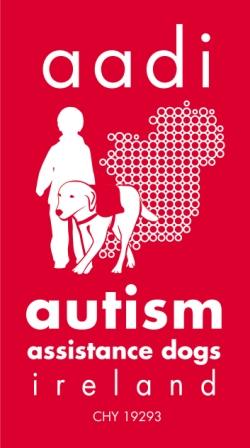Wear Blue to raise Autism Awareness and much needed funds for AADI on 29th April 2016.
This month marks the ninth annual World Autism Awareness Month. One in every one hundred Europeans has autism, with prevalence rates on the rise, Going Blue is all about creating awareness around autism.
Scoil Bhríde is proud of its three special classes for children with autism and will mark Autism Awareness by asking all of our students to wear something blue (blue jeans, blue jumper, blue wig/hairband/slide, blue jewellery etc.) on Friday 29th April.
We suggest that everyone bring a donation (€1) for Autism Assistance Dogs Ireland (AADI) which will help train more Assistance dogs for children with autism.
Autism is a spectrum condition, which means that, while all people with autism share certain difficulties, their condition will affect them in different ways. Some people with autism are able to live relatively independent lives but others may have accompanying learning disabilities and need a lifetime of specialist support. People with autism may also experience sensitivity to sounds, touch, tastes, smells, light or colours.
Asperger syndrome is a form of autism. People with Asperger syndrome are often of average or above average intelligence. They have fewer problems with speech but may still have difficulties with understanding and processing language.
How do people with autism see the world? People with autism have said that the world, to them, is a mass of people, places and events which they struggle to make sense of, and which can cause them considerable anxiety. In particular, understanding and relating to other people, and taking part in everyday family and social life may be harder for them. Other people appear to know, intuitively, how to communicate and interact with each other, and some people with autism may wonder why they are ‘different’.
About Autism Assistance Dogs Ireland. Autism Assistance Dogs Ireland was founded on April 26th 2010 and its headquarters is based in Mallow, Co. Cork. AADI is a national charity providing highly trained Assistance dogs for children with autism. The charity provides a valuable service that can have life changing effects for children with autism and their families. AADI dogs are specially trained to provide safety, independence & companionship to children with autism who would otherwise live in a very isolated world.
How an Assistance Dog can help a child with autism? Many children with autism have a tendency to “bolt” and have no sense of danger. Like most children, children with autism do not always want to hold an adult’s hand but an Assistance dog can help. In Public, the child is attached to the assistance dog, which is under control of an adult at all times. This makes outings possible and pleasant for all the family. Also some children with autism find it difficult to communicate clearly but the assistance dog gives the child confidence and improves the child’s socialization skills.
Lynn spoke about her son Ben who has autism & Chester their Assistance Dog ….We are the very lucky family who got Chester. The difference he has made to our son’s life and in fact to the whole family has been unbelievable. Since we got Chester we see how it has changed our lives, it makes me very sad for the children who have to wait years before they can benefit like we did and that long wait is solely down to lack of funds.
How it works? The dog wears a specifically designed jacket which is connected to the child via a belt around the child’s waist and a connection from this to the jacket. There is also a handle on the side of the dog’s jacket for the child to hold onto. This means the child is completely safe and the parent holds onto the lead controlling and giving instruction to the dog.
The dogs are taught to walk ahead with the child and to respond to various commands including left and right turns, standing at kerbs and locating objectives such as doors and crossings. All Assistance dogs have a high standard of obedience and social behaviour which is needed as they have to access to public places including shops, restaurants and cinema’s. The dog lives with the family in the home environment and it is encouraged that the dog goes everywhere with the family.
Training an Assistance Dog? It costs €15000 to train each dog and AADI is not government funded so all money raised is through fundraising. Each Assistance dog takes 18 months to train and is placed with a foster family initially from 2 months to 14 months old where they learn the basics like socialising and commands. The dog then returns to our centre in Mallow, where the dog enters its final stages in training which takes up to 4 months and is then matched to a suitable child and family who will have already been assessed and accepted for an assistance dog. The family goes through intensive training to ensure they are confident before taking the dog home and this is then followed up by aftercare visits to the home by Nuala Geraghty, Trainer and Founder of AADI.
AADI does not charge the family for the dog as Autism Assistance Dogs Ireland retains ownership of the Assistance Dog throughout its working life, but the families are responsible for their day to day care including vet costs.
Autism Assistance Dogs Ireland changing lives for children with autism.
